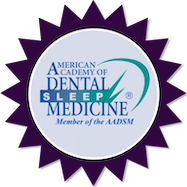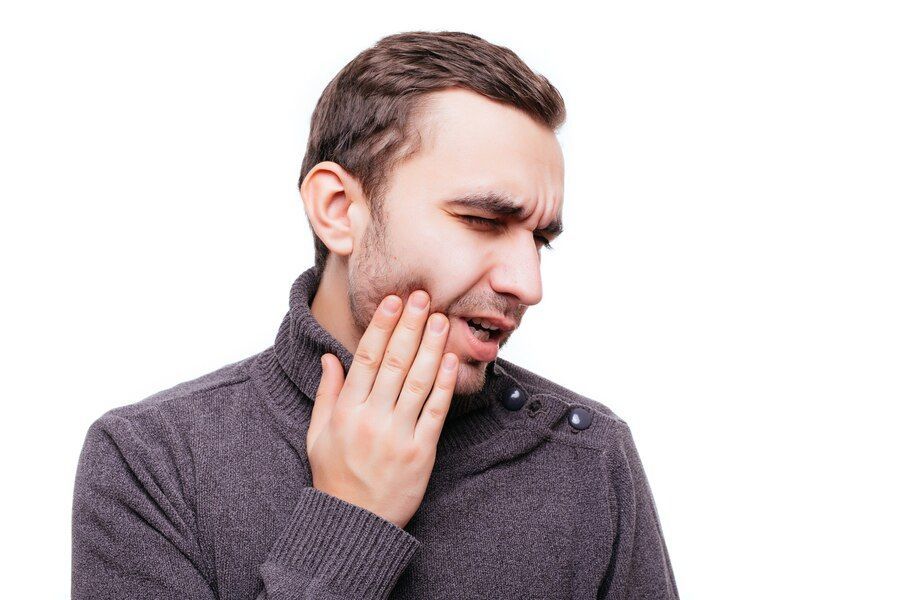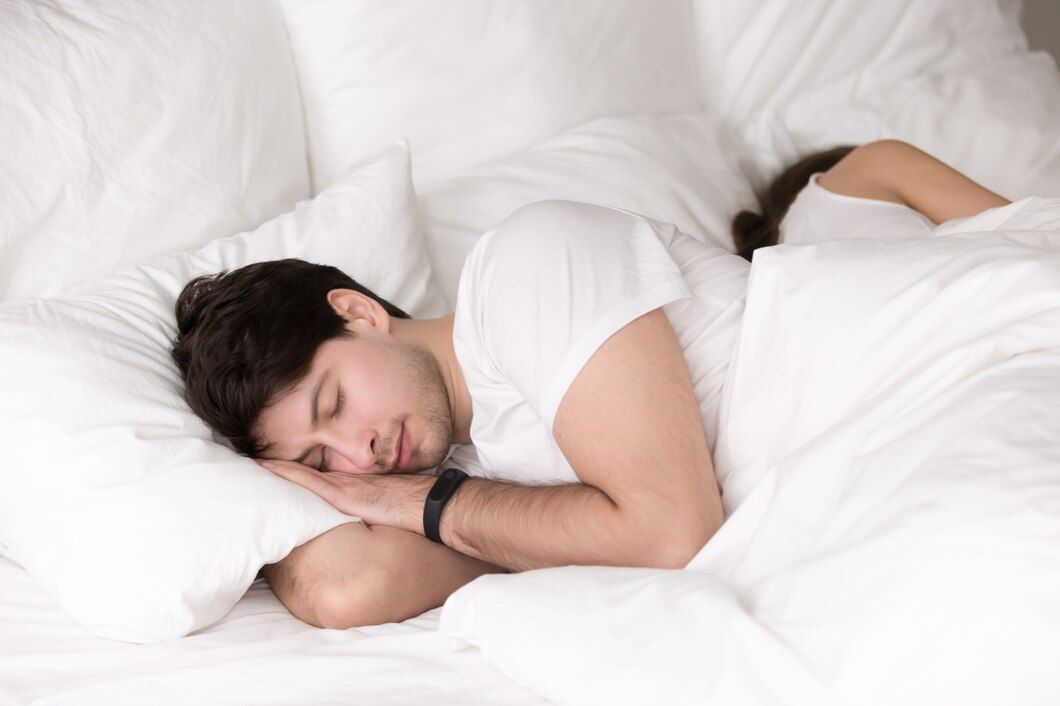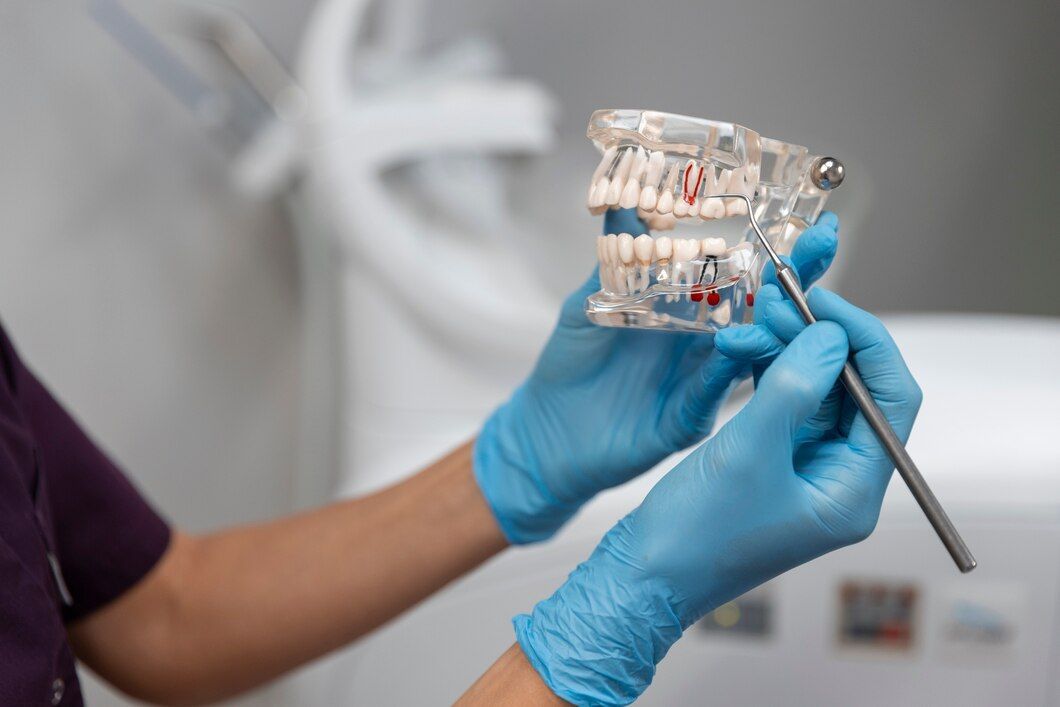Welcome to Fuller Sleep & TMJ Solutions | Greensboro, NC | frontdesk@fullersleep.com
TMJ Disorders and Better Sleep Solutions

TMJ disorders can make everyday activities painful and challenging. The temporomandibular joint (TMJ) acts like a sliding hinge, connecting your jawbone to your skull. When this joint is out of balance, it can cause a lot of discomfort. Common symptoms include jaw pain, difficulty chewing, and clicking sounds when you open your mouth. These issues not only affect your daily life but can also disrupt your sleep.
Good sleep is essential for overall health and well-being. However, if you're suffering from TMJ disorders, getting a restful night can be difficult. Jaw pain and related symptoms can cause you to wake up frequently, making it hard to reach the deep, restorative stages of sleep. Lack of sleep can then worsen the symptoms of TMJ disorders, creating a vicious cycle of pain and exhaustion.
In this article, we will explore how TMJ disorders affect your sleep and share some home strategies to improve your rest. We will also discuss professional treatments available from Dr. Fuller at Fuller Sleep & TMJ Solutions to help you achieve better sleep. By understanding TMJ disorders and taking proactive measures, you can improve your sleep and quality of life.
Understanding TMJ Disorders and Their Symptoms
TMJ disorders affect the temporomandibular joint, which connects your jawbone to your skull. This joint helps you perform basic functions like talking, chewing, and yawning. When something goes wrong with this joint, it can lead to a range of uncomfortable symptoms. Some common signs of TMJ disorders include jaw pain, difficulty opening your mouth wide, and a clicking or popping sound when you move your jaw. Sometimes, the pain can even spread to your neck and shoulders.
Another symptom often experienced by people with TMJ disorders is facial pain. This pain can be intense and may extend to the ears, causing earaches or a ringing sensation known as tinnitus. You may also experience frequent headaches or migraines, which can make daily activities very challenging. Swelling on one or both sides of the face and locking of the jaw are other symptoms that can indicate a TMJ disorder.
Recognizing these symptoms early on is crucial for effective management. If left untreated, TMJ disorders can worsen over time, leading to chronic pain and more severe problems. Understanding what to look for can help you take the necessary steps to seek appropriate treatment and manage symptoms more effectively.
How TMJ Disorders Disrupt Sleep
TMJ disorders don’t just cause daytime discomfort; they can severely disrupt your sleep as well. Jaw pain and muscle tension can make it hard to find a comfortable sleeping position. When you're constantly adjusting your position to relieve pain, your sleep quality suffers. This might cause you to wake up frequently during the night, preventing you from getting the deep, restorative sleep you need.
Nighttime teeth grinding, often associated with TMJ disorders, is another significant disrupter of sleep. Grinding your teeth not only damages your teeth but also puts additional stress on your jaw muscles and joints. This can lead to increased pain and more frequent awakenings. If you wake up with a sore jaw or headaches, teeth grinding might be the culprit.
TMJ disorders can also lead to a condition called sleep apnea, where your airway becomes obstructed during sleep, causing you to stop breathing temporarily. This interruption in breathing can wake you up multiple times per night, leaving you tired and groggy during the day. Poor sleep quality exacerbates the symptoms of TMJ disorders, creating a cycle of pain and sleeplessness that can be hard to break.
Understanding how TMJ disorders affect your sleep can help you find ways to improve your rest. Correctly addressing the root causes and symptoms can lead to better sleep and overall well-being.
Home Strategies to Improve Sleep with TMJ
Living with TMJ disorders can be tough, but there are several simple strategies you can try at home to improve your sleep. One effective approach is to adopt a regular bedtime routine. Going to bed at the same time each night helps regulate your body's internal clock, making it easier to fall asleep and wake up refreshed. Creating a calming pre-sleep routine, like reading a book or taking a warm bath, can also help signal to your body that it's time to wind down.
Using a good pillow can make a big difference for people with TMJ disorders. Opt for a pillow that supports your neck and keeps your head aligned with your spine. This helps reduce strain on your jaw and neck muscles. Some people find that sleeping on their back with a supportive pillow can reduce TMJ-related discomfort and improve sleep quality. Avoid sleeping on your stomach, as this position can add unnecessary pressure to your jaw.
Additionally, applying a warm compress to the jaw before bed can help relax tense muscles and relieve pain. You can also practice relaxation exercises, like deep breathing or gentle stretches, to ease muscle tension. Avoiding hard or chewy foods in the evening can also prevent additional strain on your jaw. Making these adjustments can create a more comfortable sleeping environment and help you get the rest you need.
Professional Treatments from Dr. Fuller for Better Sleep
While home strategies can help, sometimes professional treatment is necessary to manage TMJ disorders effectively. Dr. Fuller at Fuller Sleep & TMJ Solutions offers various treatments designed to reduce TMJ symptoms and improve sleep quality. One popular option is oral appliance therapy. These custom-made devices are worn at night to keep the jaw in a position that reduces stress on the TMJ, leading to less pain and better sleep.
Dr. Fuller may also recommend physical therapy as a part of your treatment plan. Specialized exercises can strengthen the muscles around the jaw and improve joint function. Learning the right techniques can significantly reduce pain and improve your ability to sleep soundly. In some cases, other treatments like ultrasound therapy or injections may be recommended to relieve pain and inflammation in the TMJ area.
If your TMJ disorder is linked to teeth grinding, Dr. Fuller can fit you with a night guard. This device protects your teeth and reduces the pressure on your jaw muscles while you sleep. Combining these treatments can provide comprehensive relief and improve your sleep quality.
Having a professional like Dr. Fuller guide your treatment ensures that you’re getting the most effective solutions for your specific needs. Professional care can make a world of difference in managing TMJ symptoms and helping you achieve better, more restful sleep.
Conclusion
TMJ disorders can be challenging, but understanding your symptoms and how they affect your sleep is a crucial first step towards finding relief. By implementing home strategies and exploring professional treatments, you can significantly improve your sleep quality and overall well-being. Techniques like using the right pillow, practicing relaxation exercises, and maintaining a regular sleep schedule can make a noticeable difference. However, sometimes these efforts need to be combined with professional treatments for the best results.
Dr. Fuller at Fuller Sleep & TMJ Solutions provides a range of effective treatments, including oral appliance therapy and physical therapy, tailored to meet your specific needs. Professional guidance can help break the cycle of pain and sleeplessness, leading to a better quality of life. Don't let TMJ disorders control your sleep and daily activities.
Take the first step towards a more restful night's sleep by scheduling an appointment with our
TMJ specialist in Greensboro, NC, today. Contact Fuller Sleep & TMJ Solutions to explore your treatment options and start on the path to better sleep and improved health. Your journey to relief begins here.

CONTACT US
Fuller Sleep & TMJ Solutions
1515 West Cornwallis Dr Suite 110 Greensboro, NC 27408
BUSINESS HOURS
Monday: 8am – 5pm
Tuesday: 8am – 5pm
Wednesday: 8am – 5pm
Thursdays: 8am – 2pm
All Rights Reserved | Fuller Sleep & TMJ Solutions
© 2023 All Rights Reserved | Fuller Sleep & TMJ Solutions
Website designed by: Morningdove - Accessibility Statement












